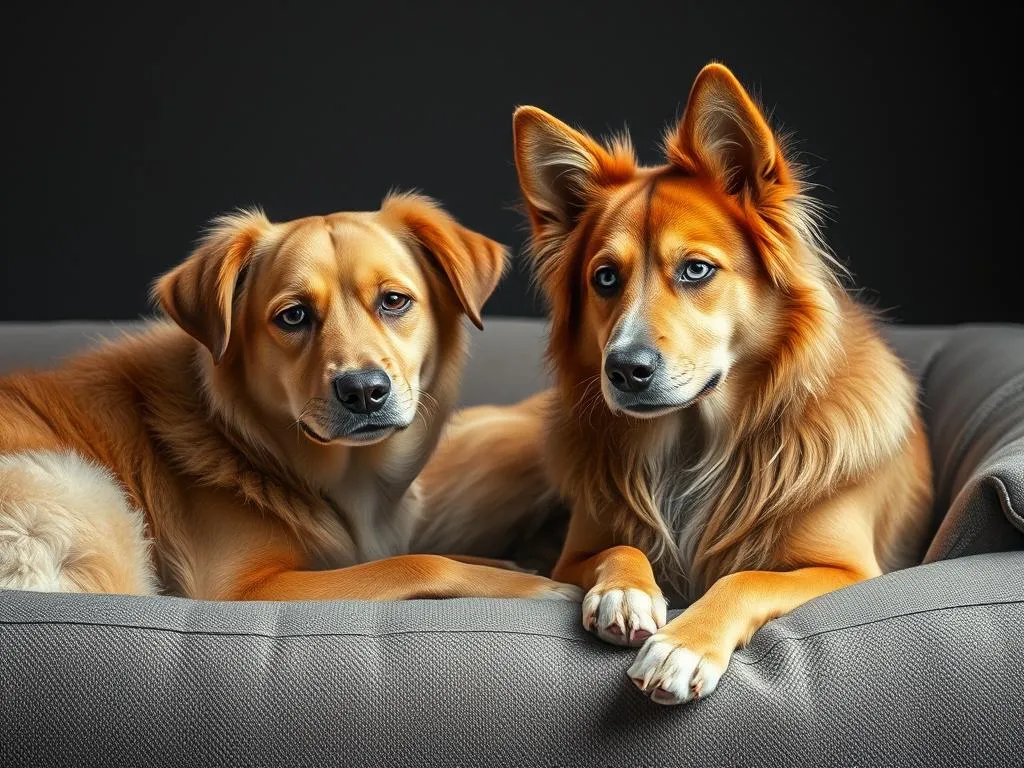
Introduction
When it comes to dog care, one of the most frequently asked questions is, how much space do dogs need? The answer to this question is crucial not only for the physical well-being of our furry companions but also for their mental health. Dogs are not just pets; they are family members, and understanding their space requirements is essential for a happy and healthy life.
Several factors play a role in determining a dog’s space needs, including breed, size, energy levels, and individual personality. In this article, we will explore these aspects in detail, providing insights on how to create the ideal living environment for your dog.
Understanding Dog Space Requirements
Factors Influencing Space Needs
Several factors influence the space requirements for dogs, and it’s essential to consider each one carefully.
-
Breed Characteristics: Different breeds have varying needs based on their natural instincts and behaviors. For instance, working breeds generally require more space for exercise and stimulation than toy breeds.
-
Size and Weight of the Dog: Larger dogs naturally need more space than smaller breeds. Their size affects their movement, comfort, and overall health.
-
Age and Health Status: Puppies and younger dogs are often more energetic and require more space to play and explore. On the other hand, older dogs may need a cozy environment that accommodates their mobility issues.
-
Activity Level and Energy Needs: High-energy dogs, such as Border Collies, require ample space for running and playing, whereas lower-energy breeds may thrive in smaller areas.
General Space Guidelines by Size
Understanding the general space guidelines based on the size of your dog can help you create a suitable environment.
-
Small Breeds (e.g., Chihuahuas, Pugs): Small breeds can thrive in compact living spaces. Ideally, they need at least 100-200 square feet for comfortable movement and play.
-
Medium Breeds (e.g., Beagles, Bulldogs): Medium-sized dogs require more room, around 200-400 square feet. They benefit from a mix of indoor and outdoor spaces.
-
Large Breeds (e.g., Golden Retrievers, German Shepherds): Large breeds need significant space—approximately 400-800 square feet. They require room to stretch out and engage in play.
-
Extra-Large Breeds (e.g., Great Danes, Mastiffs): Extra-large breeds often benefit from 800 square feet or more. They need plenty of room to move comfortably and avoid feeling cramped.
The Role of Living Environment
Apartment Living vs. House with Yard
When considering how much space do dogs need, the type of living environment plays a crucial role.
-
Advantages of Apartment Living: Many dogs adapt well to apartment living, especially smaller breeds. Key advantages include proximity to parks, less outdoor maintenance, and the opportunity for socialization with neighbors.
-
Disadvantages of Apartment Living: Limited space can be a challenge, especially for energetic dogs. Owners must be diligent about providing regular exercise and mental stimulation.
-
Making Small Spaces Work: If you live in an apartment, consider establishing a routine that includes daily walks, playtime, and designated areas for your dog to rest and play.
Outdoor Space Requirements
A secure outdoor space is essential for dogs, regardless of their size. Having a fenced yard allows for safe exploration and playtime, which is crucial for their physical and mental well-being.
-
Importance of a Secure and Fenced Yard: A well-fenced yard not only keeps your dog safe but also provides them with a space to run and play freely.
-
Recommendations for Outdoor Activities: Regular outdoor activities such as fetch, agility training, and simple walks can help meet your dog’s exercise needs.
Space for Exercise and Play
Physical activity is vital for a dog’s health. Each breed has its preferred types of activities, and understanding these can help you utilize space effectively.
-
Types of Activities Suitable for Different Breeds: High-energy breeds may enjoy running or playing fetch, while lower-energy breeds might prefer leisurely walks or puzzle games.
-
Importance of Regular Exercise: Consistent exercise helps maintain a healthy weight, reduces behavioral issues, and promotes overall happiness.
Health Implications of Space Limitations
Physical Health Risks
A lack of appropriate space can lead to various physical health risks for dogs.
-
Obesity and Related Conditions: Insufficient exercise due to limited space can result in obesity, which can lead to diabetes, heart disease, and other health issues.
-
Joint and Mobility Issues: Dogs confined to small spaces without adequate exercise are more prone to joint problems and reduced mobility as they age.
Mental Health Considerations
Space is not just about physical comfort; it also affects a dog’s mental health.
-
Anxiety and Stress Due to Lack of Space: Dogs that do not have enough room to move around may experience anxiety and stress, leading to destructive behaviors.
-
Importance of Stimulation and Enrichment: Providing mental enrichment through toys, games, and social interactions can help mitigate the effects of limited space.
Socialization Opportunities
Limited space can also affect a dog’s ability to socialize.
-
Importance of Social Interactions with Other Dogs: Regular interactions with other dogs can improve behavior and reduce anxiety.
-
Impact of Limited Space on Social Behavior: Dogs that do not have opportunities to socialize may develop behavioral issues, such as aggression or fearfulness.
Tips for Maximizing Limited Space
Creating a Dog-Friendly Home
Even in smaller spaces, you can create a welcoming environment for your dog.
-
Furniture Arrangement and Safety Measures: Arrange furniture to create open pathways for your dog to move around. Ensure that hazardous items are out of reach.
-
Designated Areas for Play and Rest: Create specific areas where your dog can play and rest. This helps them feel secure and reduces anxiety.
Indoor Activities for Dogs
Keeping your dog engaged indoors can help make up for limited space.
-
Games and Training Exercises: Interactive games such as hide-and-seek or basic obedience training can stimulate your dog mentally and physically.
-
DIY Toys and Puzzles for Mental Stimulation: Consider making toys or puzzles that challenge your dog and keep them occupied.
Utilizing Community Resources
Take advantage of local resources to give your dog the space they need.
-
Local Parks and Dog-Friendly Spaces: Regular visits to parks can provide essential exercise and social opportunities.
-
Dog Parks and Socialization Opportunities: Dog parks are excellent for allowing your dog to interact with others and expend energy.
Assessing Your Dog’s Specific Needs
Monitoring Behavior and Health
Paying attention to your dog’s behavior can help you assess their space needs.
-
Signs of Stress or Discomfort Due to Space: Watch for signs of anxiety, such as excessive barking or destructive behavior, which may indicate that your dog needs more space or stimulation.
-
Importance of Regular Vet Check-Ups: Regular veterinary visits are essential for monitoring your dog’s health, including their physical and mental well-being.
Consulting with Professionals
Sometimes, it’s best to seek advice from professionals to ensure your dog’s needs are met.
-
When to Seek Advice from a Dog Trainer or Behaviorist: If you notice behavioral issues related to space, consulting with a trainer or behaviorist can provide strategies to help.
-
Role of Veterinarians in Assessing Health and Space Needs: Your veterinarian can offer tailored advice based on your dog’s specific breed, age, and health conditions.
Conclusion
In conclusion, understanding how much space do dogs need is a multifaceted consideration that depends on various factors, including breed, size, and activity level. It’s essential to create an environment tailored to your dog’s unique needs to ensure their physical and mental well-being.
Evaluating your living situation and recognizing your dog’s requirements can lead to a happier, healthier life for your furry friend. Take the time to assess your dog’s needs and adapt your space accordingly. Your canine companion will thank you for it!









